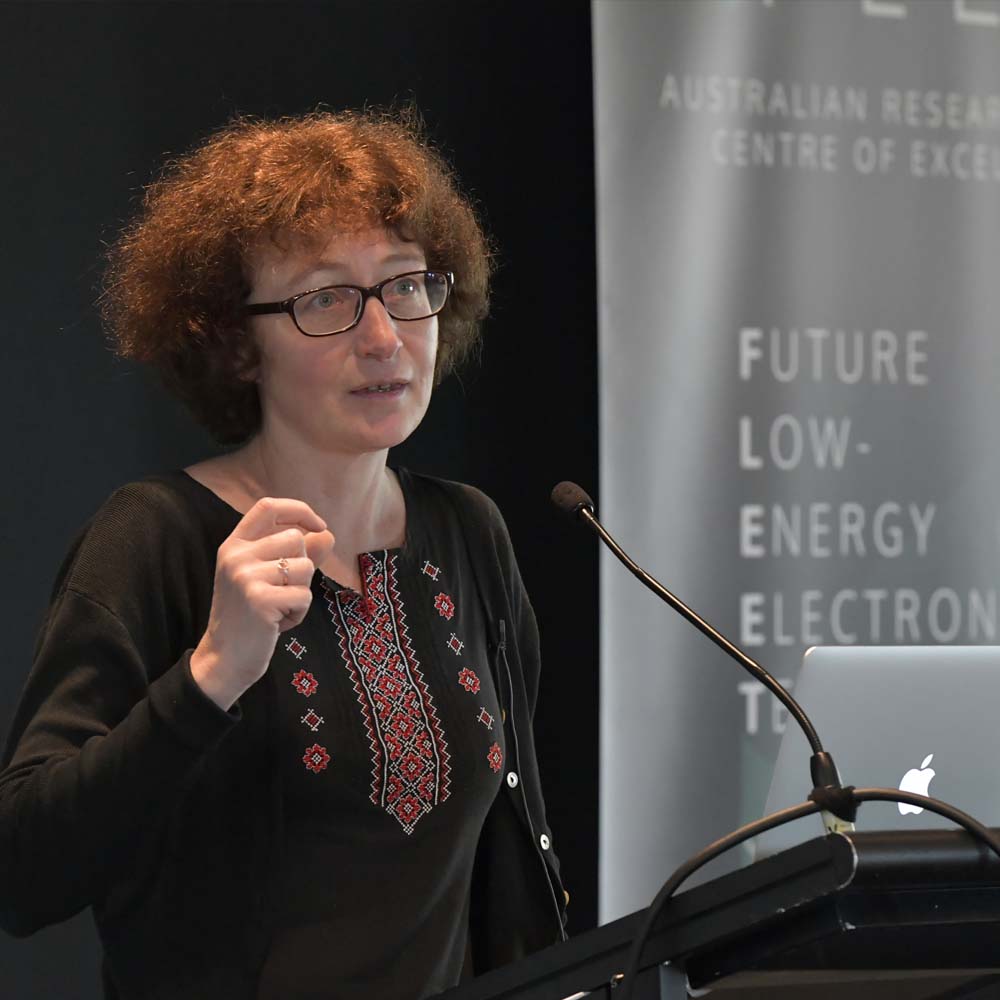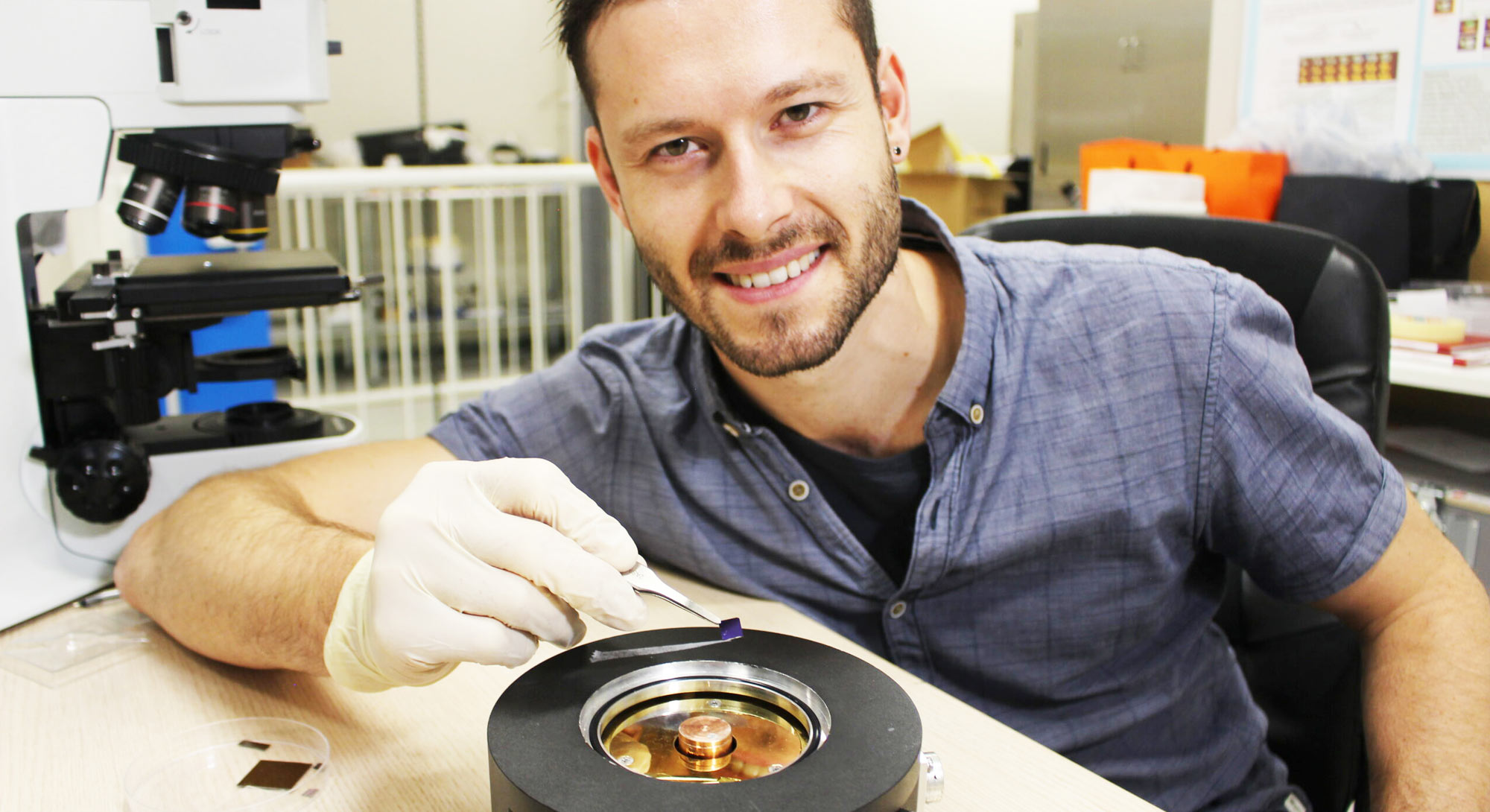FLEET is the first group to have observed dissipationless transport of exciton-polaritons at room temperature.
Exciton superfluids
Research theme 2
Prof Elena Ostrovskaya
Leader, Research theme 2
ANU
Expertise: non-linear physics, quantum degenerate gases, Bose-Einstein condensates, exciton-polaritons
Research outputs (Elena Ostrovskaya):
140+ papers
4900+ citations
h-index 37 (Scopus)

Research theme 2 highlights FLEET’s collaborative nature, involving cross-disciplinary input between nodes and with several Partner Investigators.
FLEET’s second research theme uses a quantum state known as a superfluid to achieve electrical current flow with minimal wasted dissipation of energy.
In a superfluid, scattering is prohibited by quantum statistics, so electrical current can flow without resistance.
A superfluid is a quantum state in which all particles flow with the same momentum, and no energy is lost to other motion. Particles and quasi-particles, including both excitons and exciton-polaritons, can form a superfluid.
Researchers are seeking to create superfluid flows using three approaches:
- Exciton-polariton bosonic condensation in atomically-thin materials
- Topologically-protected exciton-polariton flow
- Exciton superfluids in twin-layer materials.
If exciton-superfluid devices are to be a viable, low-energy alternative to conventional electronic devices, they must be able to operate at room temperature, without energy-intensive cooling. Thus, FLEET seeks to achieve superfluid flow at room temperature, using atomically-thin semiconductors as the medium for the superfluid.
FLEET is a leading contender in an international race to be the first to achieve superfluid condensate of exciton-polaritons
2021 highlights
- Observing room-temperature dissipationless transport of exciton-polaritons in monolayer WS2 (see case study)
- Observing optically-induced topological phase transition of novel non-Hermitian topological invariant in exciton-polariton systems
- Probing biexcitons and exciton-polarons in ultra-fast pump-probe spectroscopy measurements
- Observing collective oscillations and measurement of the speed of sound in exciton-polariton superfluid
- Developing theories of polariton-polariton and polariton-electron interactions, and theory of quantum correlations for confined polaritons
- Developing a comprehensive theory of vortex dynamics and pinning in superfluid flows.
In 2022 FLEET will…
- Continue to explore transition to exciton-polariton condensation in atomically-thin TMDCs
- Explore the topologically nontrivial exciton-polariton systems
- Continue to explore, both experimentally and theoretically, the consequence of interactions in exciton-polariton systems
- Continue investigation of properties of excitons and exciton-polaritons in ultra-fast spectroscopy experiments
- Develop a theory for nonequilibrium superfluid flow
- Develop a nonequilibrium theory for the polariton condensate.
